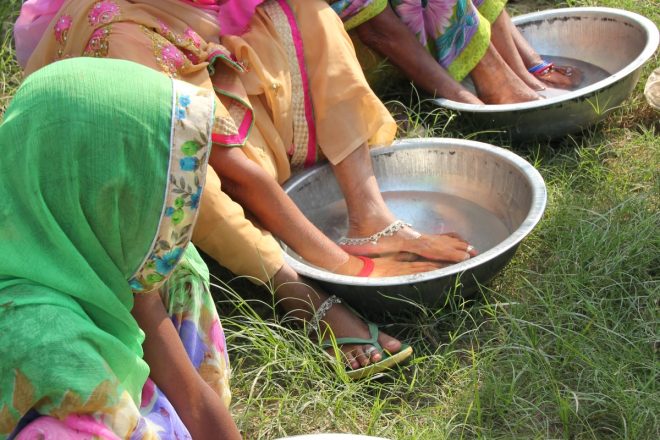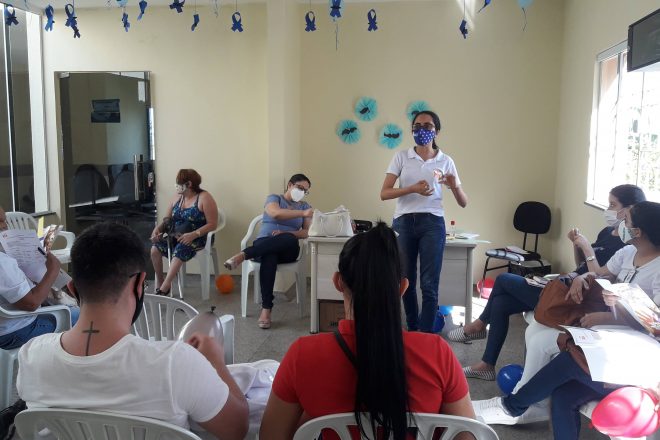Self-care groups in Brazil and India


Lockdowns in Brazil and India resulting from the COVID-19 pandemic have severely hampered disability prevention activities such as self-care group gatherings and face-to-face trainings on self-care. However, the NLR teams adjusted well and strengthened their virtual communication. Selfcare group members and coordinators were contacted by phone, e-mail, WhatsApp or video calls so that support could be continued.
NHR Brazil reached out to self-care group coordinators and health professionals and involved more than 270 health professionals and students in lectures and online debates on the theme of rehabilitation and self-care groups. With support from universities, 24 cards with educational information were produced, 21 videos and four podcasts with guidelines ranging from self-care to prevention of COVID-19 were recorded and broadcasted. NHR Brazil thus strengthened the existing self-care groups in 14 cities in the states of Ceará, Pernambuco and Rondônia. There was no reported worsening of conditions among self-care group members and there were no reports of leprosy reactions. Home visits to leprosy patients with greater social vulnerability were carried out by the group coordinators who provided patients with hygiene and self-care kits. This benefited 229 patients and 771 family members.
NLR India used a combined self-care approach to address prevention and management of disability due to leprosy and lymphatic filariasis. Teaching self-care to persons affected by these diseases enhances safe mobility and increases their ability to perform daily activities. Under the COVID-19 restrictions in India, the NLR India team was still able to form 27 new combined self-care groups, and train 3,129 persons affected with leprosy and lymphatic filariasis, as well as health staff. During lockdown periods, most self-care group members were reached through virtual platforms to educate them about self-care practices and any issues raised by them were addressed. If urgent physical support was required, government health staff were contacted for their assistance. Ulcers with persons affected by leprosy improved in 96% of the cases, and 14 people
could be referred for reconstructive surgery.